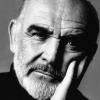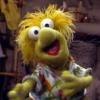Literary Bond Superior to Movie Version
Nov 11, 2012 4:45 AM EST
Compare Ian Fleming’s fictional creation in his novels to what we see on the screen and the differences start piling up. It's the books, not the films, that should be the standard Bond, writes Allen Barra.
They stand together in a dusty corner of my father’s old bookcase, scratched and battered but still serviceable, as much a part of a boy’s coming of age in the 1960s as Beatle records and old copies of Playboy in which many of the Bond novels first made their way to junior-high-school-aged males. The Signet paperbacks—I don’t think I’ve ever seen a hardcover of one of Ian Fleming’s James Bond books—still conjure up images of adventures in exotic locales, Istanbul and the French Riviera, Japan and Jamaica.
With the release of Skyfall, 2012 is being hailed as the 50th anniversary of James Bond—the first film, Dr. No, was released in the U.K. in 1962—but those of us who spent our pubescent years huddled under blankets reading Bond know he is older than that. The first Bond was more sober and serious than the sly and sometimes salacious super-agent first played by Sean Connery. Connery, of course, was the perfect movie Bond, or at least until Daniel Craig took the role six years ago in Casino Royale. But Connery was not the Bond of Ian Fleming’s books; Craig, though he is terrific, isn’t either. But a man who rides motorcycles across rooftops and jumps 50 feet onto a moving train is the creation of the movies.
In the wake of Bondmania in the 1960s came a backlash of stories complaining that Bond wasn’t a realistic spy. Who cared? We knew that Bond wasn’t a spy or even a secret agent. (And how secret could an agent be who was given an obit in the London Times as Bond was after his apparent death in On Her Majesty’s Secret Service?) He was, true to his and his author’s World War II commando origins, a killer, a trained assassin; a killer of spies. That’s what “007”and “license to kill” meant.
Where did that 007 come from? There are three excellent theories. Fleming’s best biographer, Andrew Lycett, in Ian Fleming, The Man Behind James Bond (1995), offers convincing evidence that “Bond’s code number was based on Ian’s knowledge of NID’s triumph in the First World War: 0070 was the German diplomatic code used to send the Zimmerman telegram”—the 1917 German plan for Mexico to attack the U.S.—“from Berlin to Washington.”
Another story connects to Elizabeth I’s spy, John Dee (the first agent of Her Majesty’s Service) who signed his reports on Spanish activities not with his name but with “007.” Dee’s choice of numbers has never been explained. Still another explanation comes from Rudyard Kipling’s story about the talking train that carried Westerners into the India of the British Empire. Kipling’s story is named for the train’s number: 007.
As for his name, surely the blandest for a world-famous fictional character, it derived not, as is popularly thought, from the author of Field Guide to Birds of the West Indies. When he began writing, Fleming told a friend at a government ministry how he was choosing names for his books: “I think of the first couple of names in my house at school and change their Christian names.” The friend suggested he use the names of acquaintances James Aitken and Harry Bond. Fleming made the right choice: No actor could find heat in “Aitken … Harry Aitken.”
Clues for Bond’s literary origins come from his enemies. In From Russia With Love, the semi-fictitious Russian murder executive arm SMERSH has a dossier on Bond. According to General Vozdvishenski, the bedrock of British intelligence “is perhaps the public school and university tradition. The love of adventure …most of their strength lies in the myth—in the myth of Scotland Yard, of Sherlock Holmes, of the Secret Service. We certainly have nothing to fear from these gentlemen.” But James Bond was no English gentleman—he wasn’t even English. His father was a Scot, and his mother Swiss—though in a last interview Fleming revealed that Bond’s mother, too, was Scottish.
Bond’s parents, it is revealed in You Only Live Twice, were killed in a climbing accident. Being an orphan and having attended school on the charity of family friends gave the early Bond an edge that was never exploited in the films till Casino Royale. He was educated, like Fleming, at Eton, but unlike his creator, he was no snob. Bond’s conceit extends no further than taking an immediate dislike to a fellow who uses “a Windsor knot. Bond mistrusted anyone who tied his tie with a Windsor knot. It … was of the mark of a cad.” (His instincts turn out to be correct. The Windsor-knotted man in From Russia With Love is revealed as the anti-Bond, SMERSH killer Donovan Grant.)
Bond’s pretensions also don’t encompass class mobility. In the last novel, The Man With the Golden Gun (1965), Bond refuses knighthood from the British crown: he is “merely a Scottish peasant … I just refuse to call myself Sir James Bond. I would laugh at myself every time I looked in the mirror to shave.” Another Scottish peasant, Sir Sean Connery, had no such qualms.
His epicurean affectations were created by screenwriters. Bond was partial to relatively simple dishes such as grilled sole and cold roast beef with potato salad. In the first book, Casino Royale (1953), he does confess, “I take ridiculous pleasure in what I eat and drink,” but rationalizes that “It comes partly from being a bachelor.” As for women, Bond was no lothario. He just couldn’t land the right girl before she got killed (like Vesper Lynd in Casino Royale) or deserted him (Tiffany Case in Diamonds Are Forever leaves him for an American Marine officer).
Bond dismisses one former love as “Fine girl, but she’s a bit neurotic.” His boss, M, harrumphs, “Perhaps it’s for the best. Doesn’t do to get mixed up with neurotic women in this business. They hang on your gun arm, if you know what I mean.” We know what he means.
What does Bond look like? Not like anyone who played him in the movies. Fleming left descriptions of Bond to enemies and lovers. Vesper in Casino Royale gazes at a photograph of Bond and finds, “He is very good-looking. He reminds me rather of Hoagy Carmichael, but there is something cold and ruthless …” The Carmichael connection is mentioned several times; Fleming was probably inspired by remarks that he himself resembled the great American songwriter. Hoagy was somewhat good-looking but far from movie-star handsome.
This came as a relief to Bond. When Tatiana Romanova in From Russia With Love tells him, “You are like an American film star,” she is startled by his reaction: “For God’s sake! That’s the worst insult you can pay a man!” Bond, however, was not entirely pleased with the Carmichael comparison, either. He looks in a mirror and sees, “His grey-blue eyes looked calmly back with a hint of ironical inquiry and the short lock of black hair which would never stay in place slowly subsided to form a thick comma above his right eyebrow. With the thin, vertical scar down his right cheek, the general effect was faintly piratical. Not much of Hoagy Carmichael there, thought Bond … ”
Surprising as it now seems to us, Fleming saw an entirely different Bond when it came time to choose his screen embodiment. He favored David Niven (who, after all, had real-life commando training) and also considered Roger Moore (then popular on TV as The Saint). He did not like Sean Connery, who, Fleming thought, did [not?] look as if he cared about Bond’s school ties and club affiliations. Fleming changed his mind when his secretary told him Connery “had something.”
The man who never lost a fight in the movies was, in his literary incarnation, not physically imposing. SMERSH estimated his height at “183 centimeters, weight 76 kilograms, slim build.” Or six feet and 168 pounds. Fleming’s Bond is no superman, though the Russians thought him an “all-round athlete, expert pistol shot, boxer, knife-thrower… knows the basic holds of judo. In general, fights with tenacity and has a high tolerance of pain.” Lucky for him, because in all the 1950s books he is tortured by people who mean business, not supervillains like in the movies who want to explain their plans and show him their erector-set operations with inexplicably obvious self-destruct buttons.
This is because they are Communists. The grim visage of Cold War is never far from Bond’s mind in any of the early books. Casino Royale’s le Chiffre, Auric Goldfinger, the hideous and asexual Rosa Kleb in From Russia With Love, Mr. Big, the fierce African-American crime boss in Live and Let Die, were all Communist agents—vermin eating at the vitals of the free world.
A thaw came in 1962 when the film script for From Russia With Love was revised to turn the villains into agents of SPECTRE—an anagram for Special Executive for Counter Intelligence, Terrorism, Revenge, and Extortion—a supercriminal organization that Bond needed hugely expensive gimmicks and gadgets to combat. In the books Bond’s constant lament is that other secret services have bigger budgets than Her Majesty’s. In From Russia With Love, he laments, while comparing his armory to the Russians, “If only his service went in for these explosive toys.” In Dr. No (1957), he envies the excellence of the CIA’s equipment and has no qualms about borrowing from us. In Live and Let Die (1954) the CIA makes him a gift of a couple thousands dollars in cash upon his arrival in New York. He thanks his allies and tells them, “I’m glad to have some working capital.”
Like all great English adventure heroes, his primary weapons are his wits and nerve and willingness to kill in the line of duty. He has no illusions about the status of his numerical designation. “It’s not difficult to get a Double-O number,” he tells one lover, “if you’re prepared to kill people. That’s all the meaning it has and it’s nothing to be particularly proud of … it’s one’s profession, one does what one’s told. How do you like the grated egg with your caviar?”
In The Man Who Saved Britain (2006), Simon Winder argued that Fleming’s novels would fade, regarded at best mere addendums to the Bond films. I would maintain the opposite. Outside of the first few Connery films and a handful of others since then, most of the Bond movies have been a waste of time. The books, on the other hand, have attracted perhaps the smartest readership of any genre writer since Raymond Chandler. Chandler, in fact, was one of Fleming’s biggest boosters, along with Kingsley Amis (who wrote a fun little book, The James Bond Dossier, and a Bond novel himself), Anthony Burgess (who wrote an introduction to a British edition of the Bond paperbacks), Cyril Connelly [sic] (author of perhaps the best parody of Fleming, “Bond Strikes Camp”), Christopher Isherwood, Elizabeth Bowen, and even John F. Kennedy, who, in a 1961 edition of Life magazine named From Russia With Love one of his 10 favorite books, along with Stendhal’s Scarlet and Black. Fleming was particularly proud of Kennedy’s endorsement; he probably died without knowing that another fan, Lee Harvey Oswald, had checked his works out of a New Orleans public library.
Fleming’s Bond is an avatar of a time still strongly felt if only dimly remembered. The Cold War may be dated, but so is the Victorian London of Sherlock Holmes and Philip Marlowe’s pre-boom Los Angeles. There will always be room in the fictional pantheon for someone willing to die in the service of his country. And when you do what you’re told as well as Ian Fleming’s Bond, you shouldn’t be begrudged a little grated egg with your caviar.
Edited by Revelator, 15 November 2012 - 06:55 PM.





